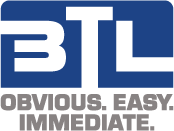“Painful prescription: Pharmacy benefit managers make out better than their customers,”~ Fortune Mag
- bobh226
- Jun 19, 2022
- 2 min read
Link to original article. In late 2008, Meridian Health Systems, a nonprofit that owns and operates six hospitals in southern New Jersey, hired a new pharmacy benefits management (PBM) company to help reduce the surging medication costs for its 12,000 employees and their families. Express Scripts, which has since become the largest PBM in the country, projected that it would slice at least $763,000 from Meridian’s $12 million in annual drug spending.
But just three months into the contract, Meridian discovered that its bills were soaring, on pace to balloon by $1.3 million in 2009. Express Scripts insisted that, in reality, Meridian was saving money.
Robert Schenk didn’t buy it. He oversees Meridian’s spending on medications for employees and its in-house pharmacy. Schenk, 57, had once owned two small-town drugstores but sold them in part because of relentless price-lowering pressure from PBMs. He knew firsthand how little pharmacies were paid relative to what customers were charged.
Schenk decided to figure out where Meridian’s money was going and why its drug costs were escalating. That was no easy task because, like most PBM customers, Meridian received data only on what it was being charged for each employee prescription. Meridian didn’t know what it cost the PBM to fill that order.
Then Schenk had a stroke of inspiration. He realized that Meridian had a second stream of data that almost no other PBM customers had: Its in-house pharmacy was paid by Express Scripts for many prescriptions. That meant Meridian could see both what the PBM was paying to buy drugs and what it was selling them for.
When he compared the two lists, the mild-mannered pharmacist was shocked: Express Scripts was making huge gross profits (known as “spreads” in the PBM world) ranging from $5 per order to many multiples of that. In one particularly extreme example, Meridian was billed $92.53 for a prescription for generic amoxicillin filled at an outside pharmacy. Meanwhile, Express Scripts paid $26.91 to Meridian’s own pharmacy to fill the same prescription. That meant a spread of $65.62 on one bottle of a generic antibiotic.
Express Scripts vehemently insists it saves money for clients and that the vast majority are satisfied with its service. And like any company — to state the obvious — it’s entitled to a profit. The question is, Who is making out better — the PBM or its customers? Many experts say the former. They argue that many companies stick with traditional PBMs because drug pricing is so impossible to untangle that customers have no way to verify how much they’re saving, if anything.
Read more here

Comments